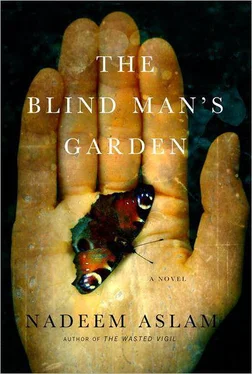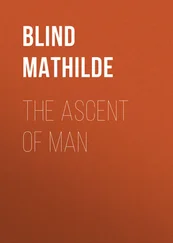‘I have had occasion to think of you not a few times over the years.’
‘And I about you.’
‘You are a doctor now.’
‘The clinic is named after my late mother.’
Naheed sees how this has shaken Rohan. ‘So these operations you have suggested …’
The man swings his black chair towards her. ‘We will have to act fast. You will need to get the funds together soon. Unfortunately in a case like this almost every day counts.’
‘And the original cause is reversible too?’
‘Yes. You seem to have been given outdated advice. There has been much scientific progress.’
Is he trying to destroy Rohan? Are these operations beneficial or necessary? Will he just waste the money on unneeded procedures and then claim he did his best? But, no. It is said that something in people’s souls will not let them take advantage of the blind or deceive them. The Koran admonishes a personage — some believe it to be Muhammad himself — for ignoring a blind man in a gathering of influential tribal chiefs.
‘My reasons to expel you from Ardent Spirit seemed persuasive at the time,’ Rohan says suddenly.
The doctor ignores the comment. ‘When should I schedule the next appointment?’ He holds out the reports. Rohan extends his arm towards the sound and takes them, the hand groping in the air before grabbing, like a bird trying to alight on a branch in a strong wind.
‘When did your mother die, may I ask?’
‘The year I graduated from medical school.’
‘The name didn’t bring her to mind,’ Rohan says. ‘I am sorry to hear of her death. May Allah have compassion on her soul.’
‘What do you mean by that?’
‘I just meant … Allah is all-forgiving …’
‘She was the most decent human being I knew.’
Naheed watches him concentrating on the man’s words. She knows from Mikal the power the voice has to reveal someone. Sometimes when he sang she would close her eyes and realise that every emotion that had been present in his facial expressions was also present in his voice.
‘I am sorry to hear of her death,’ Rohan says again. ‘There are many ways to live a good life, and Allah is all-forgiving.’
The doctor looks at him and then in a calm controlled gesture rings the bell for the next patient to be shown in.
‘Thank you,’ Naheed says, getting up. ‘We’ll contact you about the next appointment.’
‘I look forward to hearing from you,’ the doctor says without looking up.
*
Night, and he walks in his garden, hands outstretched, touching the skin of the world in the darkness. He moves beside the night scent of flowers, feels on the bark the names Jeo and Mikal had scratched when they were children.
That afternoon thirty years ago, when the boy was brought into his office, Rohan had no intimation that one of the darkest years of his marriage was about to begin. The child was amiable and conscientious but was brought in because he had attempted to steal from the school’s garden — this garden, here. Some of the more daring boys often did that, picking fruit from the trees or taking bird eggs. But he was attempting to steal an implement from the shed. At first he would not explain his motives. Eventually he said, ‘I want to dig up my father’s grave to see if it matches the picture that my mother keeps on the shelf.’ His fellow students had been taunting him. Some of them were summoned to the office and the complete details of the entire affair came to light. There was no father, the mother was a fallen woman.
Rohan went to see her that very afternoon, knocking on the door of the house and waiting while a youth, no older than the senior boys at Ardent Spirit, came out. Suddenly he had a vision of the woman corrupting his student body. There was no prejudice at Ardent Spirit. There were all sects of Islam at the school. Shias, Deobandis, Wahabis. When Rohan heard that a teacher had given a Shia student fewer marks than he deserved, he had investigated the matter immediately. But this was different.
To his utter shock the woman was unrepentant. He offered to waive her son’s fees if she would put an end to her commerce. He visited her every day for a week to try and persuade her. Almost every student knew about it by then and a number of alarmed parents had visited Rohan, threatening to withdraw their children. He went to the classroom mid-lesson and asked him to collect his things.
‘Sir, I am sorry for stealing the spade.’
‘That is not the reason for your expulsion,’ he remembers saying, looking directly ahead. ‘Your mother is a sinful woman.’
They got into the rickshaw and putting his hand into his satchel the boy brought out an eraser. ‘Sir, I borrowed this from Fareed Chaudhuri. Can you give this back to him please?’
Rohan put the item in his pocket. ‘I will do that later.’
The woman came to the door of her house and took the child in wordlessly.
Sofia raged at him. She wanted to go to the woman’s house and bring back the boy — a thought that stunned him. There would be no eye contact with her for over a year after that day. He felt persecuted, believing he had done the only correct thing possible under the circumstances, and he had begged Allah for strength and begged Him to forgive Sofia for some of the words she had uttered in fury.
In the garden one dawn, the house lit red by the sunrise, she said she was leaving him.
They had both attended Punjab University in Lahore, though at different times, he being five years older. Born and raised in Heer, and possessing an intense shyness of character, he had not fitted in at the university, or into the large city. His efforts to understand himself and his times were lonely ones, and he lived in fear of — and perhaps even a mild revulsion at — the behaviour of the other students. He stood out to the extent that he could not even bring himself to wear Western clothes — those trousers that had pockets in appallingly inappropriate places, front and back, from where items of food could then be pulled out and eaten, hands removed to be shaken, documents produced and handed over. She — who was also from Heer — had thrived at the university however. A laughing confident beauty. He was already teaching at a government school when he met her. She was the new English teacher, and a month after they were introduced she caught him opening a notebook in which she had been writing earlier: full of longing for her, he had wished to see her handwriting. Some glimpse of a thing that was intrinsically her. Intimate. And he knew she might be his only chance at happiness. At the year’s end she entered the room and, lowering herself into a sitting position before him, told him he must ask her to marry him. Covering his lying mouth with her hands when he tried to protest.
Her emotions were always closer to the surface than his.
Now she placed the large suitcase on the dresser in their bedroom and emptied her wardrobe into it, and it remained there for a year. She herself moved into her study. Some nights he would hear her come into their bedroom and he would pretend to be asleep. 2 a.m. or 3 or 4. And she would sit in the chair for a while and watch him. Then she would rise and take a few items out of the open suitcase and leave. Then one day her clothes were back in the wardrobe. Her parents were dead and her brother had his own family. She had nowhere to go, the brother reminding her that she had chosen to marry Rohan without seeking his counsel. ‘Now go and be a modern woman,’ he said. ‘Live somewhere divorced and alone.’ He had waited all these years to avenge the slight to his honour.
*
He turns his face upwards, where the visible planets must be burning in the eastern sky. He reaches the overgrown thor bush and slowly raises his hands towards the spike-filled branches, wondering how he will know which of these limbs must be amputated next year to restore symmetry.
Читать дальше












